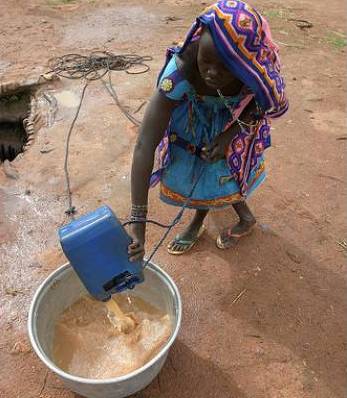Ethical water stewardship
 The international World Water Week meeting has attempted to raise awareness in developed countries of the growing water sanitation crisis in developing nations. According to the Huffington Post, more than 3 million people are killed each year from water-related diseases, and 98 percent of water-related deaths occur in the developing world.
The international World Water Week meeting has attempted to raise awareness in developed countries of the growing water sanitation crisis in developing nations. According to the Huffington Post, more than 3 million people are killed each year from water-related diseases, and 98 percent of water-related deaths occur in the developing world.
A large part of the world’s water crisis is the belief that as individuals, there’s not much we can do. Wednesday’s Huffington Post article by Karl Hoffman outlines some simple things you can do online to help provide sanitized water to the world’s poor, from joining a Facebook group to signing a petition to President Obama.
The Huff Post points out that it’s a disease that’s easy to ignore, since you can’t “catch” a water-related disease. Bioethicist Peter Singer, author of the upcoming book “The Life You Can Save,” made the point on NPR’s Marketplace this week that even in a time of recession, it’s unethical not to give to the poor, sick and dying:
“You’re walking across a park, and you see a small child fall in a pond. The child might drown in the pond if you don’t rescue the child because nobody else is around. So of course you jump in. And you jump in even if you’re wearing your most expensive shoes, and you know they will get ruined. If that’s just something we will automatically take for granted as the right thing to do, then at the very least you should give up the equivalent of the cost of a pair of expensive shoes to save a child’s life. And I don’t think it makes any difference if the child is there in front of you, or the child is somewhere in Africa or India.”
Photo credit: UNICEF. Huff Post story tip from Simon Owens.